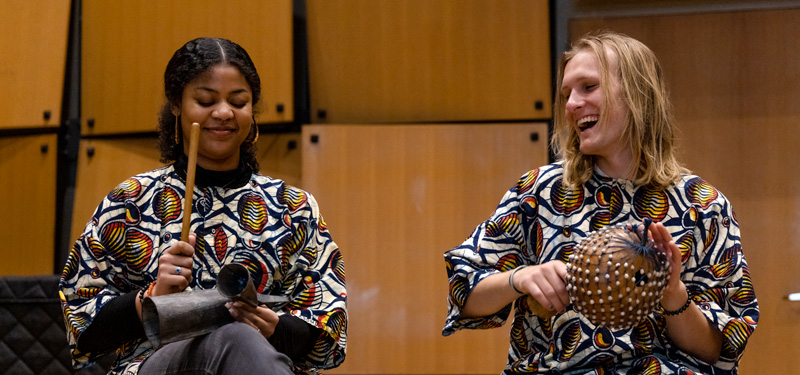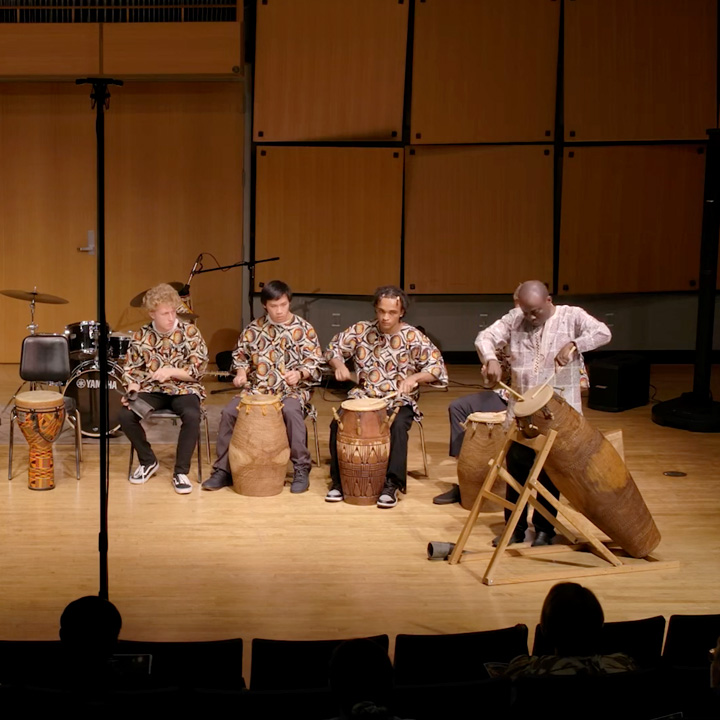
Overview
World Music and Ethnomusicology at LMU is a vibrant nexus of academic study, ensemble performance, and special events. A concentration in ethnomusicology challenges students in the major to discover the cultural wellsprings of music through rigorous study as well as fieldwork in the environs of Los Angeles.
Support for study abroad has afforded opportunities to trace insights gained in campus-based study and performance to sources of origin. Ensembles that borrow from the repertoires of Indonesia and West Africa invite students from across the university into the living sphere of these musics. Special events host distinguished scholars and performers whose accomplishments are a source of inspiration for our students and our community.
Post-graduate career options
- Arts management
- Library sciences
- Archival/Institutional
- Film composition
- Music consulting
- Museum curation
- Public sector (e.g. departments of cultural affairs)
- Publishing
- Record industry
Academic Requirements
In addition to the 38 semester hours of general music major requirements and the foreign language requirement, students in the concentration will take MUSC 304 Topics in World Music Cultures; MUSC 407 Research and Methods in Ethnomusicology; MUSC 454 World Music Ensembles I; MUSC 455 World Music Ensembles II; Additional 6 semester hours selected from the following: MUSC 365 History of Jazz; MUSC 380/381/480/481 Guitar, Percussion, Piano, Strings, Voice, Composition; and MUSC 396 Sociology of Music.
A grade of B+ or above in MUSC 303 is required to be considered for admission to the World Music/Ethnomusicology Concentration.
Questions?
Contact lmumusic@lmu.edu
Nov. 20, 2022
